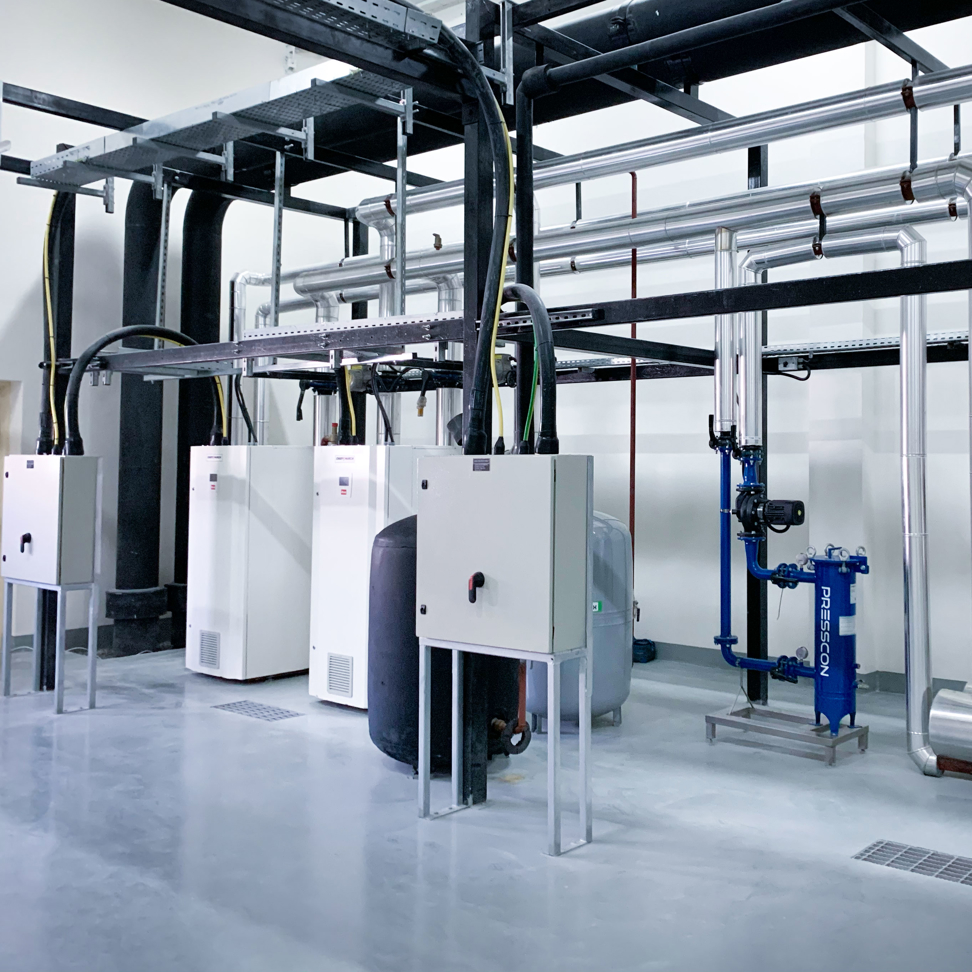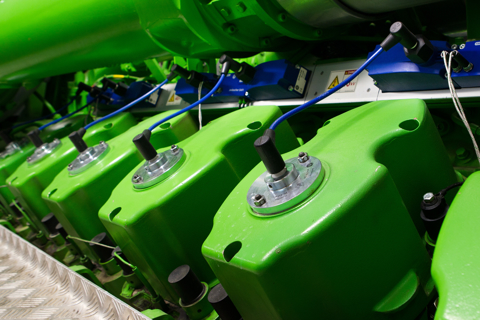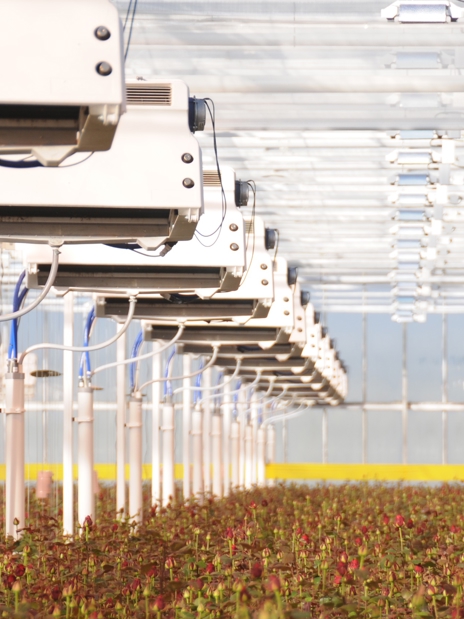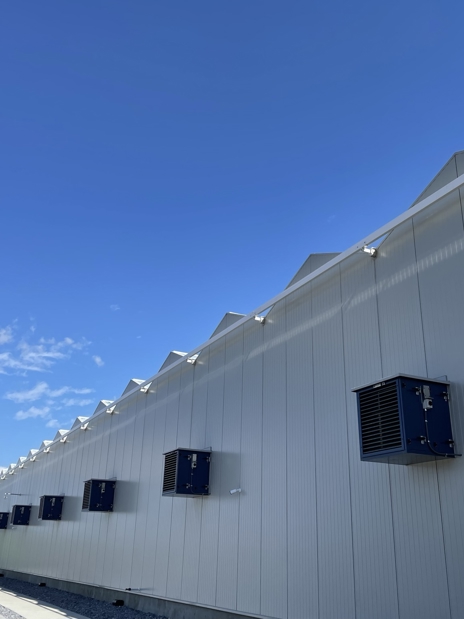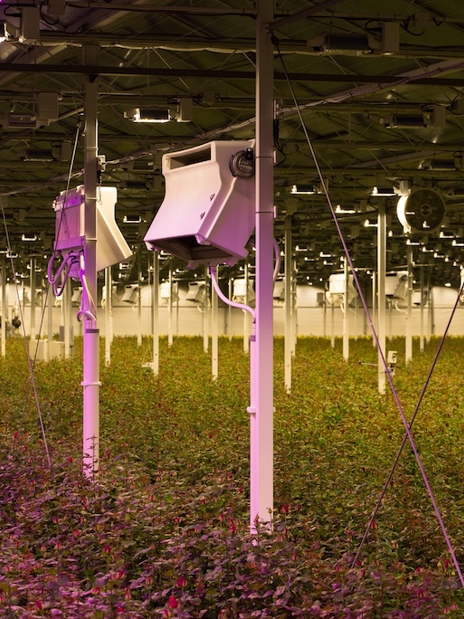The first greenhouse heater systems enabled Dutch growers to extend their growing season over a century ago. Today, heating systems remain a crucial element in commercial greenhouses around the world. When looking at climate, the first things to notice is the temperature during the day, the temperature at night and the levels of relative and absolute humidity. Many greenhouse crops require a temperature difference between day and night for proper fruit set. In many cases, the 24-hour average temperature should be above 18 degrees Celsius. To achieve these conditions, a greenhouse heating system is in most cases the first technical installation that should be considered. The maximum possible temperature difference in the Dutch greenhouse, the Delta T, is what the heating systems are designed for. Various heating methods are available for greenhouses nowadays. These include solar panels or solar heating, geothermal heating, electric heating, and many more options!
Greenhouse Heating
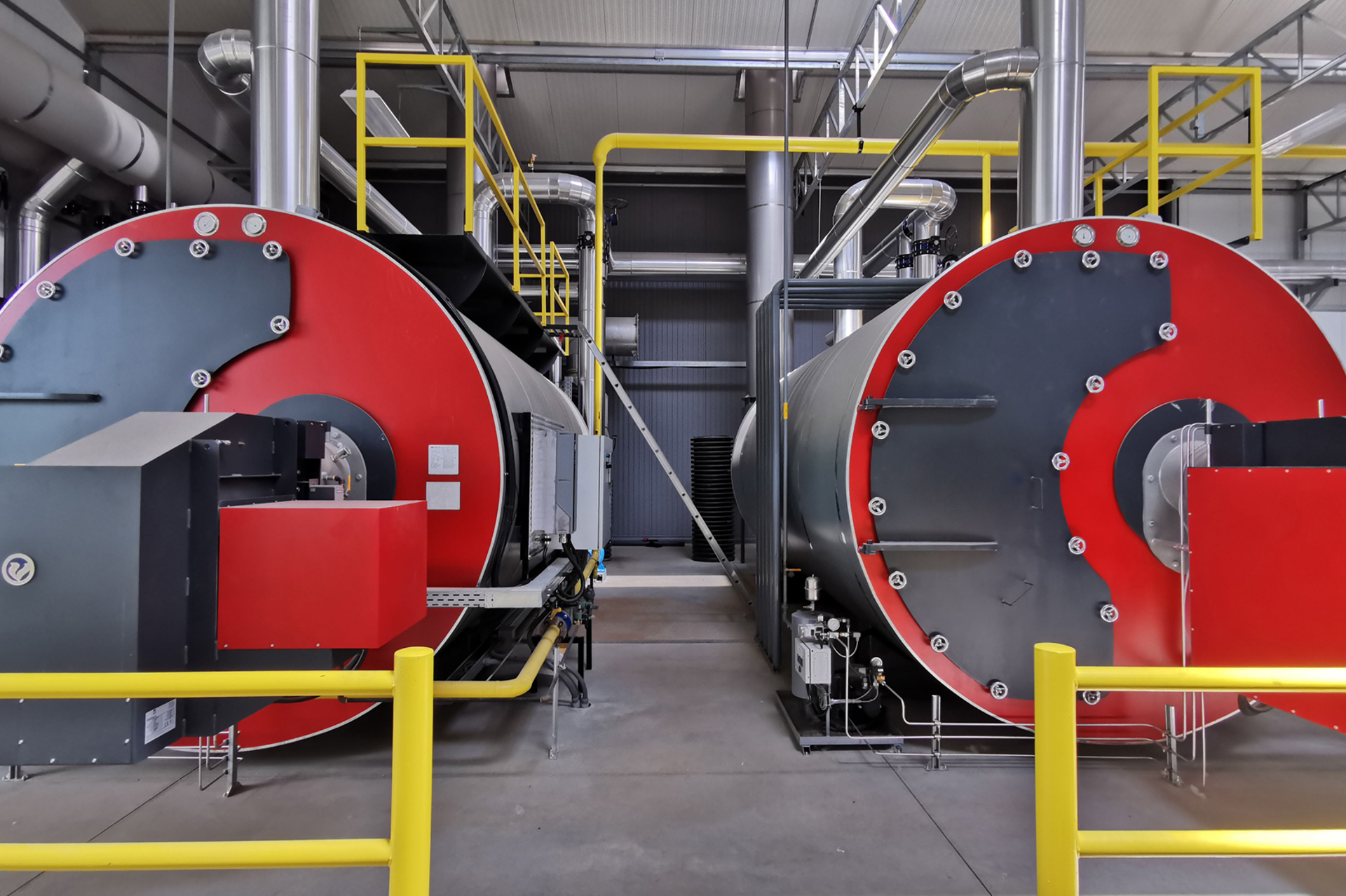
Greenhouse Heating System
Heated Greenhouse
Tube Rail system & Bench greenhouse heating
The most common heating system in commercial greenhouses is the multi-purpose tube rail. Especially with vegetable crops, the tube rail heating system is widely used because it offers a significant logistical advantage as a maintenance and harvesting vehicle and because the tube rail is used as a track. In cases where a table system is used, crops such as lettuce, herbs, potted plants and cannabis can be used. The tube rail is placed in the table supports, creating the same effect, but losing the logistical benefits.
Monorail greenhouse heating
A monorail is mainly used in greenhouses that do not have the logistical advantages of the pipe rail heating system. Monorails are tubes suspended from the truss, thus providing heat from above, but below the screens. During engineering, the structural loads must be taken into account for this system, including the way the monorail system is used. The monorail allows for carts to be suspended from the truss and to go over the crops for harvesting, crop care and maintenance purposes.
Grow tube & Snowmelt greenhouse heating
A common hot-water circuit in vegetable production is the grow tube. The grow tubes are single tubes situated at fruit-level throughout the greenhouse, which enables the grower to control the ripening process.
In cold climates, the tube rail system and the growing tube are supplemented with a snow-tube circuit. This melts off the fallen snow from the deck of the greenhouse, without having to open the climate screens and disorder the temperature at crop-level. Applying a "snow-melt" reduction factor during structural engineering, can allow for an overall lighter greenhouse structure, lowering capital expenditures and less heat loss.
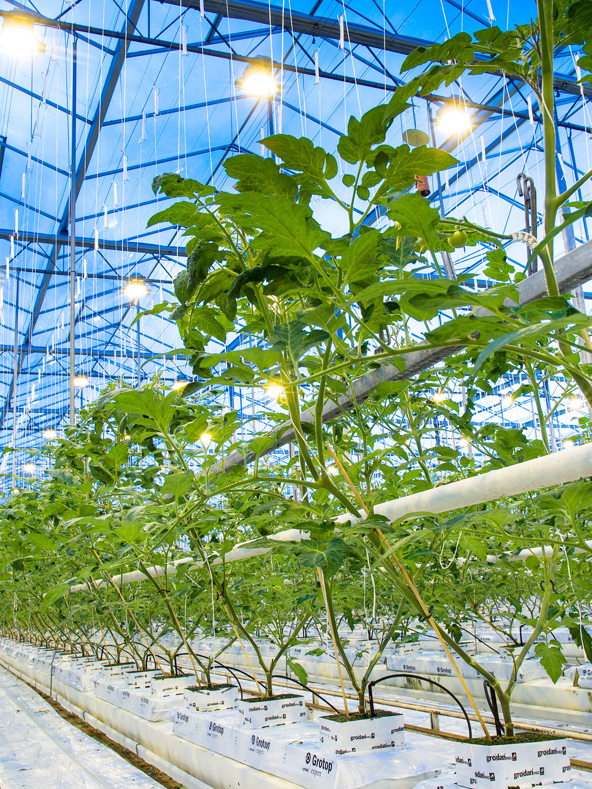
Do you want to know more about greenhouse heating systems?
Do you want to know more about heating in greenhouses?
How to heat a greenhouse?
Electrical Greenhouse Boilers & CHP
Boilers are the most commonly used heat source for heating water for use in the radiant heating system. Traditionally, the boilers that are used are fuelled by liquid natural gas (LNG). These hot-water boilers are subject to strict regulations and tests to ensure low NOx levels and optimal efficiency. By adding a condensor, CO2 can be recuperated and brought into the greenhouse for CO2 enrichment.
Another hot-water source for greenhouse heating is combined heat & power, CHP. As the name indicates, a CHP system produces heat and energy simultaneously. Combined heat and power sources run on gas and can therefore, in combination with a condenser, also be used for CO2 capture for enrichment in the greenhouse.
The volatility of gas prices around the world has led to a significant increase in installations of electric boilers in greenhouse systems. Electricity as a power source can be combined with solar-, wind- and hydro energy plants, creating an overall sustainable heating system. The drawback is that CO2 cannot be recuperated and must therefore be sourced elsewhere, liquid CO2 or CO2 capturing from the air.
